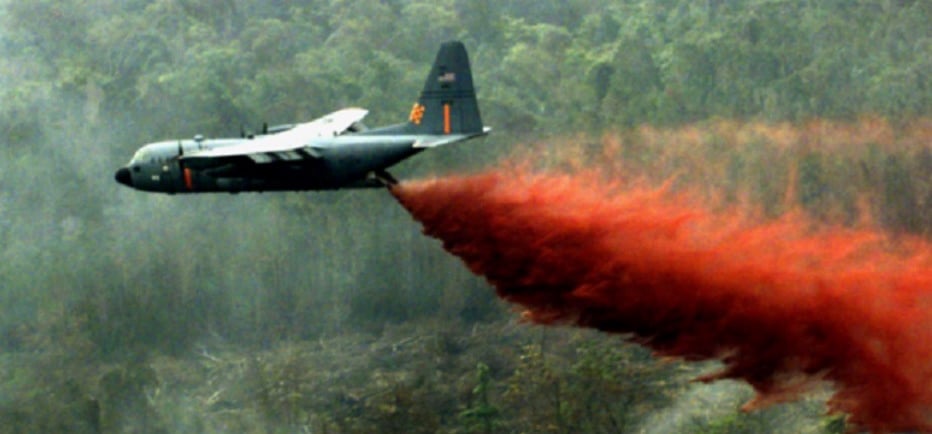Ecocide and Equity
What do we owe to each other?
1/16/20243 min read


The term “ecocide” is said to have originated in 1970, in response to the United States’ destruction of Vietnamese land and lives during the Vietnam War, by Professor Arthur Galston of Yale University (de Pompignan 2007; Greene 2019).
Throughout its evolution, ecocide as a concept has been viewed to various extents from the perspective of anthropocentrism. To generalise, a common starting point has been that humans affect and are affected by ecological change, but ultimately stand apart from - and indeed above - nature, the environment, and other non-human organisms.
For instance, Professor Harry Petrigrew argued in 1971 that in the United States there is an implied constitutional right to be free from ecocide, and that ecocide ought to be understood as “the substantial destruction of an integral part of a particular ecosystem or the unreasonable degradation of the environment in general” (Greene 2019) - in short, taking the approach of strict liability in interpreting harms committed by humans on nature through the lens of human suffering.
Environmental harm has been also addressed to various degrees in the Environmental Modification Convention 1976 (“ENMOD”) and the Additional Protocol I 1977 to the Geneva Conventions (“API”), the former prohibiting wartime “environmental modification techniques” with broad and long-term effects, and the latter going further in forbidding warfare methods which could damage nature and harm the local (i.e. human) population (Minkova 2023). The proposed draft, by Professor Richard Falk in 1973, of an International Convention on the Crime of Ecocide, lists acts which could comprise ecocide if committed with the intention to destroy a human ecosystem (Greene 2019).
In her more inclusive proposal of 2010, Higgins described ecocide as extensive loss or damage to ecosystems which in turn diminishes both human and non-human organisms' enjoyment of that area (Greene 2019). A similarly broad definition was tendered by Laurent Neyret in 2015 from the viewpoint of planetary security when he defined ecocide as actions which “threaten the security of the planet and are committed as part of a widespread or systematic action” (Neyret 2015).
Recently, in a reversion toward the direction of anthropocentrism, the Independent Expert Panel for the Legal Definition of Ecocide (the “IEP”) suggested that ecocide be defined as “unlawful or wanton acts committed with knowledge that there is a substantial likelihood of severe and either widespread or long-term damage to the environment being caused by those acts”, with a view toward the ultimate inclusion of ecocide under the Rome Statute of the International Criminal Court (the “Rome Statute”) as an international crime alongside genocide, crimes against humanity, war crimes, and crimes of aggression (Minkova 2023).
Criticisms against the IEP’s proposed definition include the internal contradiction of the required mens rea as defined (Minkova 2023), the excessively high or narrow mental awareness (Branch and Minkova 2023), and the anthropocentrism involved in permitting the weighing of socio-economic benefits (to humans) against environmentally harmful activities (Minkova 2023).
At present, liability specifically for environmental damage under the Rome Statute is incurred only in the context of international armed conflict, leaving a lacuna with regard to damage occurring in peacetime, which could arguably be filled by the IEP's proposed drafting (Minkova 2023).
The transboundary nature of environmental harm further compounds the complexity of the matter - particularly given the labyrinthine nature of ecosystems - as we seek to elucidate, in concept, causation, and extent, “the problem of whose environmental harms and whose social benefits—or whose visions of those things—are being balanced" (Branch and Minkova:66). This takes us back to the question of humans’ place in the planet vis-à-vis other living organisms, other fellow humans, and to future generations of human and non-human organisms. Damage to the environment today inter alia causes suffering in other living organisms whether plants and animals, destroys indigenous and local lives and cultures, and reduces the opportunities and wellbeing of future humans.
To my mind, ecocide is not merely a question of criminality on a transnational level, but also an issue of intragenerational, intergeneration, and interspecies equity.
As practitioners, legislators, jurists, and humans, we need to ask ourselves what we value, who we value, and what we owe to each other today and in millenia to come.
References:
Branch, A. and Minkova, L.G.. (2023). 'Ecocide, the Anthropocene, and the International criminal court'. Ethics & International Affairs 37(1) 2023, pp.51-79.
de Pompignan, N. (2007). 'Ecocide, Mass Violence & Résistance'. [en ligne], publié le : 3 Novembre, 2007, accéder le 17/05/2021, http://bo-k2s.sciences-po.fr/mass-violence-war-massacre-resistance/fr/document/ecocide, ISSN 1961-9898https://www.sciencespo.fr/mass-violence-war-massacre-resistance/fr/document/ecocide.html
Greene, A. (2019). 'The campaign to make ecocide an international crime: Quixotic quest or moral imperative'. Fordham Environmental Law Review 30 (3) 2019.
Neyret, L. (2015). ‘D’es écocrimes à l’écocide: Le droit pénal au secours de l’environnement’ (Bruylant, 2015) 1, 288
Minkova, L. G. (2023). ‘The fifth international crime: Reflections on the definition of 'Ecocide'’. Journal of Genocide Research 25(1) 2023, pp.62-83.
Mwanza, R. (2018). ‘Enhancing accountability for environmental damage under international law: Ecocide as a legal fulfilment of ecological integrity’. Melbourne Journal of International Law, 19(2) 2018, pp.586-613.
Photograph: PCF https://www.pcf.fr/actualite_agent_orange_le_jugement_du_tribunal_d_evry_flirte_avec_le_d_ni_de_justice_pcf
(Photograph from from PCF)